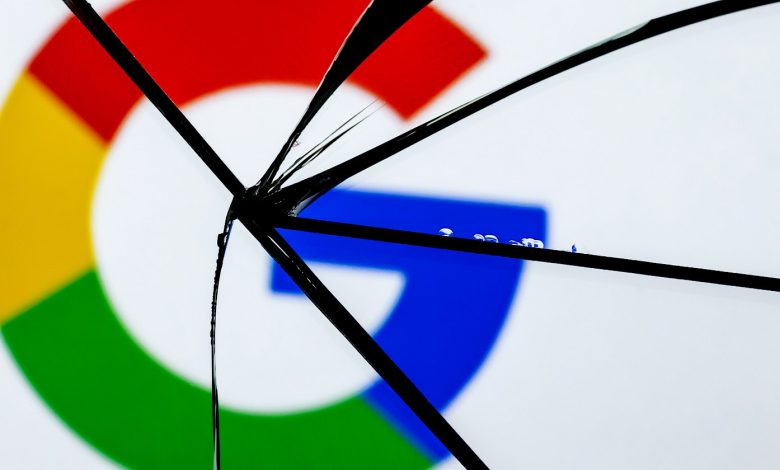
In a landmark antitrust case, the U.S. Department of Justice (DOJ) has outlined potential remedies to address Google’s monopoly in search and search advertising. Although the phrase "breaking up Google" is popular in headlines, the reality is more nuanced. This article clarifies the DOJ’s proposals, Google’s response, and what it all could mean for the future of search.
The DOJ’s Case & Proposed Remedies
The DOJ’s argument centers on Google’s alleged abuse of its position in search and search advertising. According to the court’s ruling in August, Google has illegally maintained monopolies in these areas for over a decade. The DOJ’s proposed remedies aim to address four key areas:
1. Search Distribution & Revenue Sharing
- Limiting or prohibiting Google’s exclusive search distribution deals
- Ending or modifying revenue-sharing agreements that incentivize partners to use Google search
- Potentially implementing choice screens to allow users to select their default search engine
2. Accumulation & Use of Data
- Requiring Google to share its search index, data feeds, and models with competitors
- Prohibiting Google from using data that can’t be shared due to privacy concerns
- Reducing barriers for rivals to index and retain search data
3. Generation & Display of Search Results
- Addressing Google’s leverage in emerging areas like AI-assisted search
- Allowing websites to opt out of Google’s AI training or features
- Ensuring fair access to web content for rival search engines
4. Advertising Scale & Monetization
- Creating more competition in search advertising
- Potentially requiring Google to license or syndicate its ad feed independently of search results
- Increasing transparency in ad auctions and monetization
The DOJ filing states: "Plaintiffs are considering remedies that will offset this advantage and strengthen competition…"
Google’s Response & Concerns
Google has vehemently opposed these proposals, arguing that they exceed the case’s scope and could harm innovation and user experience. The company’s key points include:
- The proposals risk user privacy and security by forcing data sharing
- Breaking up products like Chrome or Android could disrupt many businesses and developers
- Changes to the ad market could make online ads less valuable for publishers and merchants
- Restrictions on search promotion could create friction for users and harm Google’s partners
Google plans to appeal the ruling and argues that search competition is thriving, especially with the emergence of AI-powered alternatives. Kent Walker, Google’s president of global affairs, stated: "This decision recognizes that Google offers the best search engine, but concludes that we shouldn’t be allowed to make it easily available."
Lee-Anne Mulholland, Google’s vice president of regulatory affairs, wrote in a blog post: "The government seems to be pursuing a sweeping agenda that will impact numerous industries and products, with significant unintended consequences for consumers, businesses, and American competitiveness."
Implications For Consumers
For consumers, the potential changes could mean:
- More choice in search engines across devices
- Counterpoint: Splitting Google’s ecosystem might disrupt seamless cross-device experiences.
- Potentially different search experiences as new players enter the market
- Counterpoint: Users may need to get used to new search UIs or algorithms.
- Increased privacy controls as data practices are scrutinized
- Counterpoint: Increased data sharing raises privacy concerns across platforms.
- Possible changes in ad targeting and relevance
Implications For Businesses
For businesses and marketers, the impact could include:
- A more diverse search ecosystem to optimize for
- Counterpoint: Managing SEO and PPC across multiple engines could be more challenging.
- New advertising platforms and models
- Counterpoint: New tools, training, or staff may be needed.
- Potential shifts in the value and cost of search advertising
- Counterpoint: A fragmented ad market might increase spend for the same reach.
The AI Factor & Future of Search
The DOJ’s proposals address emerging technologies like AI, recognizing its growing importance in search. This could have the following implications:
- Lowering barriers for new entrants to compete in AI-driven search
- Potentially fragmenting the development of search AI across multiple companies
- Changes in how search results are generated and displayed, including AI-powered features
The filing notes: "Google’s ability to leverage its monopoly power to feed artificial intelligence features is an emerging barrier to competition and risks further entrenching Google’s dominance."
Industry-wide Impact
The case has implications beyond just Google:
- Other tech giants may face increased scrutiny and similar antitrust actions
- The broader tech industry may see shifts in how platform businesses operate
- Venture capital and innovation in search-related technologies could see a resurgence
Legal & Regulatory Landscape
This case is part of a broader trend of increased antitrust scrutiny of tech giants:
- Similar cases are proceeding against other major tech companies
- The outcome could influence future tech regulation globally
- It may set precedents for how monopolies are defined and addressed in the digital age
Looking Ahead
The DOJ’s current proposals are preliminary, with more detailed remedies expected in November and March. The case will likely face appeals and could take years to resolve fully. As stated in the filing: "Plaintiffs will continue to engage with market participants, conduct discovery, and ultimately, provide the Court with a further refined Proposed Final Judgement in November 2024 and then, in accordance with the Court’s Order, a Revised Proposed Final Judgment in March 2025."
Key questions for the future include:
- How will the balance between competition and innovation be struck?
- Can breaking up or restricting Google lead to more search competition?
- How will these changes affect the global competitiveness of U.S. tech companies?
For search professionals, marketers, and businesses relying on search, staying informed and adaptable will be vital. As this case progresses, it will undoubtedly shape the future of search, digital advertising, and the broader tech industry. Whether these changes will truly “break up” Google or simply reshape its role in the digital ecosystem remains to be seen, but the impact will likely be felt for years to come.


